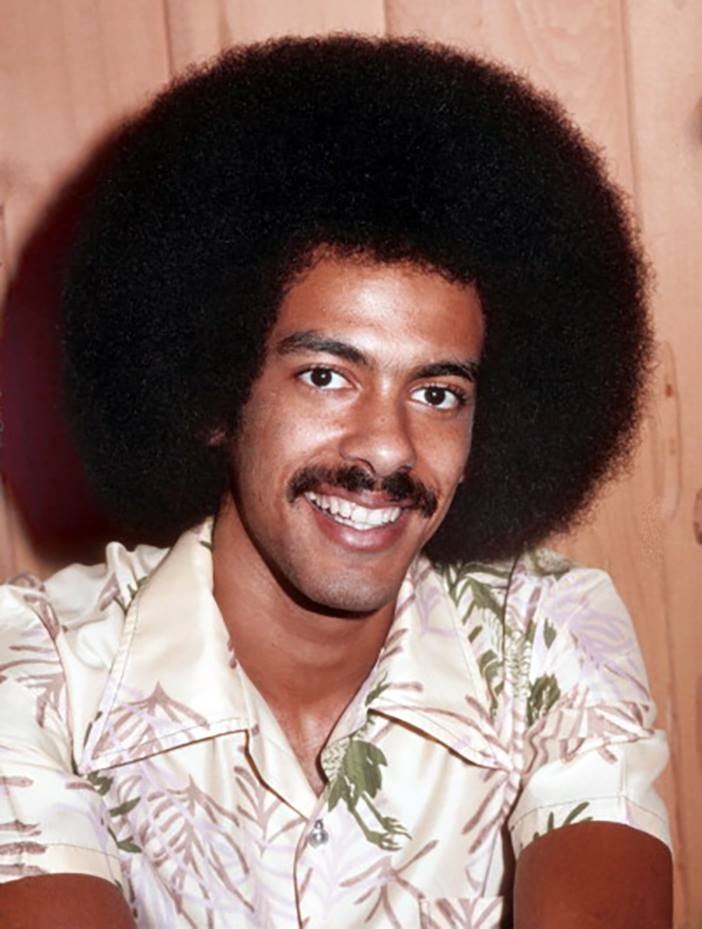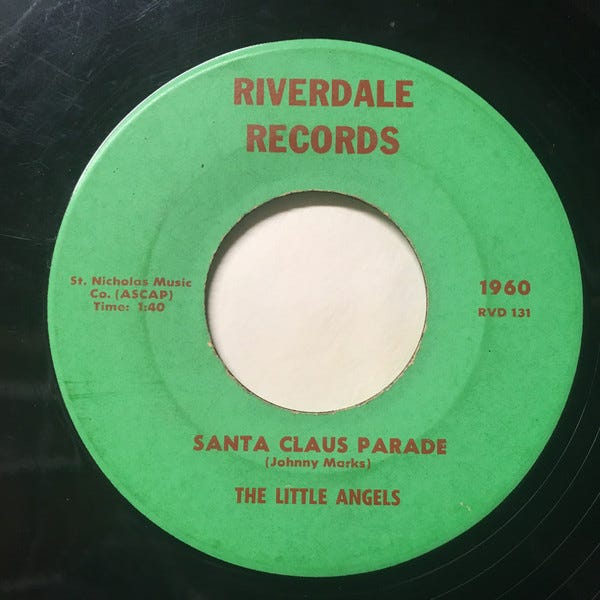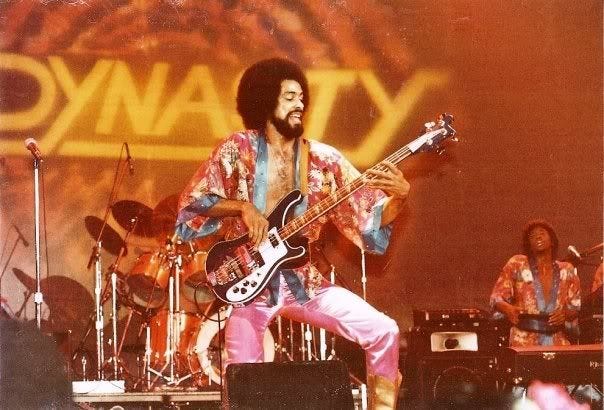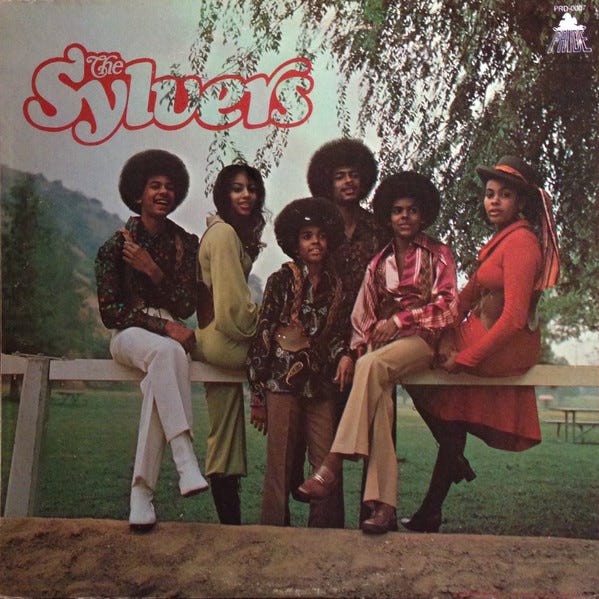The Leon Sylvers III Interview Part 1
The legendary multi-instrumentalist, producer, and songwriter reflects on homemade DIY drum kits, The Little Angels, The Sylvers' self-titled debut, and the creation of Foster Sylvers' "Misdemeanor."
The biography of Leon Sylvers III far exceeds a single article. His production and songwriting accomplishments require an entire book, yet even massive volume would fail to fully capture his rise as one of the most sought after creative minds in Black music during the 1970s and 1980s.
Despite Leon’s remarkable and varied career that spans across many decades, the excellent Questlove Supreme Episode #69 is the only long-form interview with him available online.
That changes now. Here is Part 1 of our conversation.
Growing up in Los Angeles near Adams and Crenshaw, Leon Sylvers III built his own drum kit out of coat hangers, a broom sweeper, and a box spring when he was just six years old. This exercise wasn’t simple child’s play, the eventual in-house producer for Dick Griffey's SOLAR Records was already demonstrating a preternatural ability to analyze and compose sound.
Utilizing a level of dedication and focus well beyond his years, he tried to mimic actual percussion as accurately as he could. “The hanger was the high hat, the broom—the hard part—were the rims and the snare, and the box spring was the kick,” he says. “I trying to create as close to the sound as possible.”
Not only was Leon mimicking actual kits, he would also retain his drum patterns and build them into full songs. “I would memorize the beat,” he says. “And if I had a title, a song that fit that beat and the melodies too, I would memorize everything. And when I would think about it, everything would flow, would pop up in my head, you know?”
By the time he was seven, his career started to transition from bedroom box spring drummer to professional artist. When his mother heard Leon and his siblings Charmaine, James, and Olympia, singing along with a three-part harmony for potato chip commercial one day, she told their father about the promising young vocalists. With a bit of coaching from their dad, the four Sylvers children were soon dubbed The Little Angels. They cut the 7” single “Santa Claus Parade”/”I'll Be A) Little Angel” on Riverdale Records, put out the 1960 Capitol Records 7” “Says You”/ “Olympia,” and earned appearances on such as TV shows like Make Room for Daddy, You Bet Your Life, and The Spike Jones Show.
Watching videos of The Little Angels’ TV guest appearances, it’s remarkable that they had the ability rehearse and perform together in such a cooperative, focused manner. Leon attributes this to several factors: the lack of easily accessible entertainment and distractions during their childhoods, a social climate where children were expected to be obedient to their parents, and the emergence of “the Motown sound.”
As much as he loved the overall Motown sound, Leon was especially taken with legendary bassist James Jamerson. Jamerson, along with drummer Benny Benjamin and the rest of Motown’s The Funk Brothers backing band, was instrumental in shaping the legendary label’s early signature aesthetic by providing the instrumentation on hits like “Dancing In The Street” by Martha and the Vandellas. “I loved the songs, but I was attracted to the bass,” he says. “Even at a young age, I loved the way it sounded.”
An opportunity to try to his own hand at bass presented itself when The Little Angels were booked at the Moulin Rouge, better known now as Nickelodeon on Sunset, alongside Dennis the Menace actor Jay North for a Christmas show in the early ‘60s. All the young performers were given gifts and Leon received a guitar at the conclusion of the show. He immediately went to work modifying the instrument, much like he did his makeshift drum kit from a few years prior. “I took the two high strings off because I knew a bass only had four,” he says. “And that's how I started learning bass. That's how detailed and strong willed I was in liking the bass over any other instrument.”
Though he didn’t realize it at the time, this decision to alter his guitar was a pivotal step in developing the novel sound that helped him become one of the most sought after songwriters and producers in the industry several years later. “The bass was the other half of my writing,” he says. “I always used it as a harmonic to my melody instead of just playing bottom. And that developed a style. All my basslines, even the hits back in the day with SOLAR, the bass is harmonic to the melody.”
Though Leon’s proficiency on the bass started to blossom, the popularity of The Little Angeles fizzled over time and the group eventually disbanded. After his parent’s separation, there was a relocation to Watts with his mother and siblings and a brief period where he was out of the public eye. But the 1970s brought about the reunion of Leon, Charmaine, James, and Olympia, and the addition of younger Sylvers siblings Edmund and Ricky.
By 1971 they had inked a deal with MGM Records’ Pride imprint and rebranded themselves as The Sylvers. Linking up with the well-established and highly successful Jerry Butler and co-producer Keg Johnson for their 1972 self-titled debut, the group became especially close to Johnson after an early meeting with him. He showed up with some songs Butler had pre-written for them to perform, but The Sylvers asked to audition their own material instead. Johnson was so impressed with their original music that he threw Butler’s songs in the trash. “I was a teenager then,” Leon says. “He was my guy after that. When he did that, we all looked at each other and smiled, and we knew what was up.”
Leon’s songwriting process for The Sylvers’ 1972 self-titled debut was just as memorable as his first meeting with Keg Johnson. When all was said and done, he ended up writing 7 out of the album’s 10 total tracks. And like any good wordsmith, he paid close attention to his surroundings for inspiration.
As an 11th grader at Alexander Hamilton High School in Los Angeles, he absorbed passionate lessons from a revolutionary history teacher named Mr. Simon. Not afraid to challenge conventional wisdom or the status quo, Mr. Simon would review the textbook version of a lesson, flip over his giant chalkboard, and tell the class, “This is what really happened,” before exploring different angles of the topic at hand. Apparently Mr. Simon’s lessons were progressive and against the grain that they became an issue of grave concern to the powers that be. FBI agents even showed up in his classroom one day and were rumored to be monitoring him.
As he wrote “Fool’s Paradise,” Leon found himself drawing upon Mr. Simon’s lessons and his language. “He used words and stuff like euphemisms, and I put that in the song,” he says. “That song was inspired by him.”
Scholarly inspiration wasn’t limited to “Fool’s Paradise,” as “Wish That I Could Talk to You” was also born in an academic setting. Apparently, Leon was busy coming up with the track’s lyrics during a math lesson when the teacher called on him for an answer. Not wanting to lose the rhythm of his work in progress and realizing he didn’t have a chance of answering it correctly, he used blunt honesty in his response and asked to be sent to detention. When his teacher pressed again him for an answer, his response remained the same. “I said, ‘Ms. So and So, send me to detention. ‘Cause at this point I'm not even going to try to act like I know.’”
His decision to take the punishment and finish the song in detention turned out to be the right one. “Wish That I Could Talk to You” was The Sylvers’ first #1 single on the R & B charts and received significant airplay on KDAY.
With the group now a known entity in the record industry, Leon wasted little time creating his younger brother Foster’s hit song “Misdemeanor.” Using a Sanyo radio cassette player/recorder, his bass, and his foot, he laid down a demo that would inform the album version later co-produced by Jerry Peters and Keg Johnson. Though the Sanyo tape recorder was simple, Leon believes it played an important role in capturing the desired sound for his little brother’s smash single. “That was a great machine,” he says. “It had the perfect condenser. It had one big, giant mono speaker.”
As he worked on the demo tape, Leon was so meticulous in the recording process that he even memorized the appropriate distance between his foot—which functioned as his drums—and the mic. “I put the cassette player at an angle,” he says. “I stomped my foot and then I started singing. The sound of the condenser mic was lovely. I was like, ‘Woah,’ I noticed how good it sounded.”
This method of a bass coupled with foot stomp percussion played into the Sanyo machine became a go-to process for Leon’s demos.
Though Keg Johnson and Jerry Peters are listed as co-producers, Leon recalls Johnson playing a larger role in the song’s creation. That said, he is quick to acknowledge the genius of Jerry Peters and his gift for song arrangement.
In addition to the killer bassline written by Leon, the song is notable for having a different percussion arrangement than the one he expected. “I knew the baseline was going to be exactly the way I did it. I didn't think the drums was going to be that beat. It was so different than what I put in my mind, but I was like, ‘OK, that'll probably work’ because the baseline was there. It was enough, ‘cause it worked, and we didn't have that much promotion and that record kind of took off.”
In another intriguing footnote to the “Misdemeanor” backstory, it was originally intended for The Sylvers’ sophomore effort The Sylvers II. That all changed when Keg Johnson showed the song to film/record producer, Incredible Bongo Band founder, and audiobook innovator Michael Viner, who was in charge of MGM’s Pride division at the time. When Viner heard that Leon and the rest of The Sylvers were waiting to release “Misdemeanor” with the next group project, he urgently insisted that it come out right away. “Keg told him about it and he heard it and said, ‘No, we gotta put that out now.’”
It instead ended up on Foster Sylvers’ impressive 1973 self-titled debut—released well before his 12th birthday—and became a surprise hit.
Click here to read Part 2 of my conversation with Leon Sylvers III.
If you enjoyed this article, please subscribe to the Micro-Chop newsletter to support independent music journalism.





